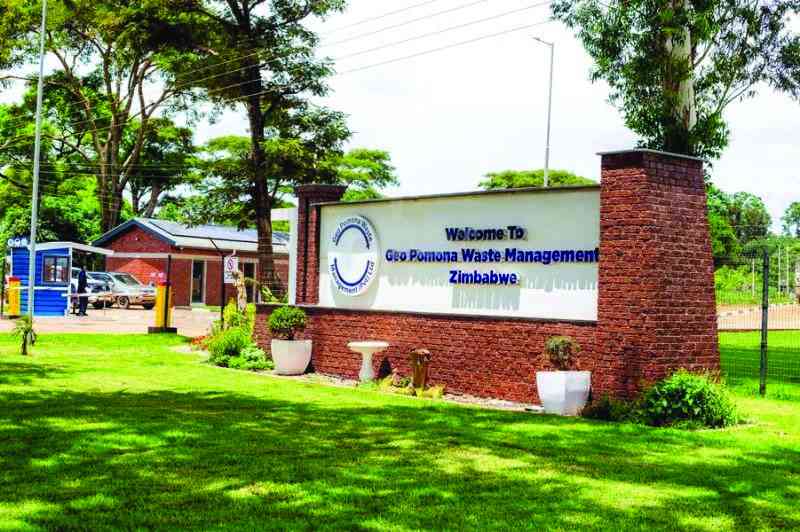
From the 5th to the 7th of July 2023, the Government of Zimbabwe hosted the first edition of the Africa Voluntary Carbon Credits Market Forum. The Forum took place in Victoria Falls under the theme: Accelerating Africa into the climate economy. The main objective of this forum is to create awareness among citizens in Africa about the importance of mitigating climate change by reducing our carbon footprint. Therefore, the African Voluntary Carbon Credits forum is designed to provide a platform for individuals, businesses and organisations in Africa to learn, share and explore business opportunities in the voluntary carbon market. The forum was especially important for Zimbabwe because the country recently developed a Carbon Credit Framework to regulate the carbon credit trading sector.
The what, why and how?
Simply put, carbon credits are are certificates that represent the quantities of greenhouse gas emissions that have been removed from the air.
Since the adoption of the Paris Agreement under the United Nations Framework Convention on Climate Change (UNFCCC) in December 2015, several stakeholders especially in the private-sector have pledged to achieve net zero emissions.
The majority of these companies often operate in the Global North. Carbon credits can be created through any project which avoids, reduces, destroys or captures greenhouse gas emissions.
That being said, carbon offsets are usually created through sustainable forestry projects or agricultural practices.
In essence, a long-term forestry or agricultural project that seeks to capture greenhouse gas emissions (usually in the Global South) will generate quantifiable carbon credits that are verified and bought by private sector entities to offset their carbon footprint.
Regulating carbon credits
- COP26 a washout? Don’t lose hope – here’s why
- Under fire Mnangagwa resorts to Mugabe tactics
- How will energy crunch transition impact transition to renewables?
- COP26 a washout? Don’t lose hope – here’s why
Keep Reading
Historically marred by irregularities for more than 10 years, where inconsistencies regarding benefit sharing, revenue transparency and issuance of carbon credits, Zimbabwe recently developed and published the Carbon Credit Framework.
The Carbon Credit Framework for Zimbabwe (CCFZ) is the first comprehensive design of the carbon credit landscape to ensure commitment to greenhouse gas emission reduction through broad sector business development strategies and improve the portfolio of sectors eligible for consideration under the compliance and voluntary carbon markets.
The CCFZ unpacks the broader policy framework and institutional arrangements applicable to carbon credits and the voluntary carbon markets in Zimbabwe.
All carbon credit projects intending to register or operate in Zimbabwe are expected to meet a set basic minimum requirement, undergo an appraisal process and follow a set of procedures.
These are determined by the carbon market chosen for participation by the project proponent and developer.
Therefore, the requirements are categorised under the CCFZ as A6.2, A6.4 (based on Articles 6.2 and 6.4 of the Paris Agreement) and Voluntary Market Mechanisms. Since most of these projects will take place in communal areas, the CCFZ makes provision for stakeholder engagement and participation.
The CCFZ promotes a multi-stakeholder engagement and participatory approach that ensures prior informed consent and community beneficiation.
This contributes to avoiding natural capital asset disposal that will compromise the role and position of communities and disposal of such assets without true value for current and future generations.
Most importantly, the gross income from carbon credit trading shall be allocated to the National Treasury (50%) (in accordance with the Finance Act pending the establishment of the National Climate Change Fund) and Proponent Investment Recovery (50%).
Operationalising private sector
Offsetting is not intended to replace efforts to reduce GHG emissions. However, it can be considered a transitional strategy that accelerates progress towards carbon neutrality.
Studies show that companies that put a price on their carbon tend to be among the most ambitious in their carbon reductions and often use the VCM as a tool to show their commitment to carbon neutrality.
By so doing, reluctant companies may be motivated to commit to climate targets by the accessibility of carbon markets as a climate mitigation tool.
Due to lower abatement costs and high sustainable development benefits, the majority of carbon credit supply comes from developing countries.
Private sector players and the VCMs have long been subjected to allegations of greenwashing and offsetting has often been described as a ‘modern trade in indulgences’. Such allegations are the core reason for carbon standards.
Carbon standards thus provide a means to ensure that mitigation projects, and resultant carbon credits, are credible.
These standards become a form of self-regulation with civil society and corporations collaborating to define the quality criteria for voluntary climate engagement.
The current carbon standards take different approaches to measuring GHG reductions and removals but all have the in common the following criteria: defining project categories and eligibility, additionality, the setting of reference levels or baselines against which emission reductions and removals are to be assessed, monitoring emissions and displacements, managing the risk of reversals through discounts and buffers, verification and certifications, sustainable development co-benefits, and participation and consultations.
These are guidelines that seek to ensure the credibility of credits generated by projects.
However, these guidelines are not always full-proof, which is why carbon buyers must still undertake due diligence in programmes or projects from which they procure carbon credits.
In addition to the standards as a means to ensure the credibility of the carbon credits, various efforts are also in place to rate the quality of offsets in terms of their GHG integrity and sustainable development value.
These efforts are a response to the risk associated with carbon market commoditisation.
While the commodification of carbon credits has significant potential to be a conduit for unprecedented investment in mitigation projects,
VCMs are more than mere financial contingencies. This is because they involve local communities and thus have the potential to alter (positively or negatively) their livelihood conditions.
However, the success of carbon projects ultimately depends on responsible project proponents and a ready market to pay fair prices including premiums for projects with high co-benefits and clear sustainable development attributes.
Moreover, where VCMs follow a rights-based approach that recognises the customary and statutory rights of local communities, projects can empower local stakeholders by providing them agency over natural resources within their locale and opening access to additional financial resources.
Therefore, community involvement and engagement in the design and benefits from the carbon projects remain imperative.
What next?
This new shift in developing a carbon trading framework presents an opportunity for Zimbabwe and developed countries to have access to and control over climate finances generated through the carbon market system.
It also ensures that there is equal understanding, inclusion and consensus on global climate finance governance systems among governments, climate entrepreneurs, private sector players, civil society and most importantly, communities.
This is also a new path towards promoting transparency in carbon trading that is often marred with technical deficiencies and complexities, lack of access to information, dishonest accounting and failure to honestly declare revenue by project developers.
While the CCFZ is still new, it stands to be seen if the revenue generated from carbon credit trading will be beneficial to all stakeholders involved, including local communities.
- Dr Moyo and Mpahlo are climate change, energy and carbon specialists. These weekly New Perspectives articles, published in the Zimbabwe Independent, are coordinated by Lovemore Kadenge, an independent consultant, managing consultant of Zawale Consultants (Pvt) Ltd, past president of the Zimbabwe Economics Society and past president of the Chartered Governance & Accountancy Institute in Zimbabwe (CGI Zimbabwe). — [email protected] or mobile: +263 772 382 852.











